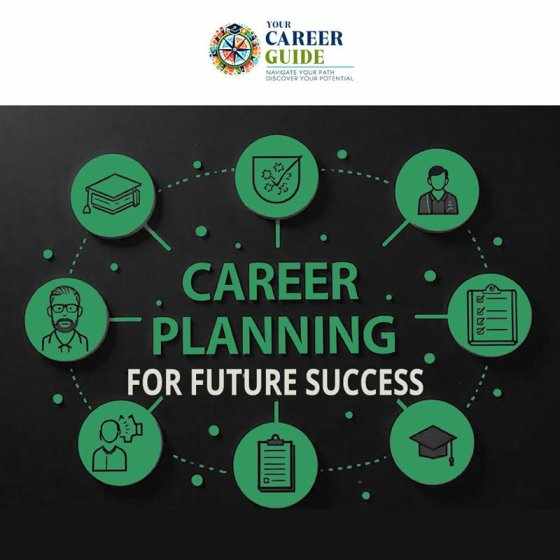
Achieving long-term career goals requires dedication, strategic planning, and continuous learning. Whether you aspire to become a leader in your field, start your own business, or advance to a higher position, taking consistent steps will help you stay on track. This blog explores practical strategies to make steady progress toward your long-term career aspirations.
1. Define Your Long-Term Career Goals
Before making progress, you need to have a clear vision of where you want to go. Consider the following steps to define your long-term career goals
Identify Your Passion and Strengths: Understanding what excites and motivates you will help you choose a career path that aligns with your interests and abilities.
Set Specific Goals: Instead of vague goals like "I want to be successful," define clear objectives, such as "I want to become a senior software engineer in five years."
Use the SMART Framework: Ensure your goals are Specific, Measurable, Achievable, Relevant, and Time-bound to make them more actionable.
2. Break Down Goals into Manageable Steps Large goals can feel overwhelming, so breaking them into smaller milestones makes them more attainable. Here’s how:
Short-Term Goals: Identify immediate steps you can take, such as learning a new skill, obtaining a certification, or networking with industry professionals.
Medium-Term Goals: These might include gaining relevant experience, earning a degree, or getting a promotion.
Long-Term Goals: Focus on reaching leadership positions, launching a business, or becoming an industry expert.
3. Develop Essential Skills Continuous skill development is crucial for career advancement. To stay competitive:
Enhance Technical Skills: Stay updated with industry trends and learn relevant technologies or methodologies.
Improve Soft Skills: Leadership, communication, and problem-solving skills are essential for career growth.
Take Online Courses and Certifications: Platforms like Coursera, Udemy, and LinkedIn Learning offer valuable resources to enhance your expertise.
Also Read: Changes in Career Development
4. Expand Your Professional Network Networking can open doors to new opportunities, mentorship, and career growth. To build meaningful professional relationships:
Join Industry Events and Conferences: Attend seminars, workshops, and networking events to connect with experts in your field.
Leverage LinkedIn: Engage with professionals, share insights, and participate in discussions to increase your visibility.
Find a Mentor: Learning from someone who has already achieved your desired goals can provide valuable guidance and support.
5. Gain Practical Experience Experience is key to progressing in your career. Consider these strategies:
Take on Challenging Projects: Volunteer for complex tasks at work to demonstrate your capabilities.
Freelancing or Side Projects: Work on independent projects to gain hands-on experience and build your portfolio.
Internships and Volunteering: If you’re starting in a new field, gaining experience through internships can accelerate your career growth.
6. Stay Adaptable and Open to Change Industries evolve, and staying flexible can help you navigate changes effectively. To remain adaptable:
Embrace Continuous Learning: Stay updated with industry trends and be open to acquiring new skills.
Consider Alternative Career Paths: If your initial plan doesn’t work out, explore other opportunities that align with your interests and strengths.
Be Willing to Relocate or Shift Roles: Sometimes, taking a different position or moving to a new location can accelerate your career growth.
7. Regularly Evaluate and Adjust Your Career Plan Setting goals is not a one-time activity. Periodically reviewing your progress ensures you stay on track. Consider these steps:
Self-Assessment: Reflect on your achievements, strengths, and areas for improvement.
Adjust Goals as Needed: Modify your career objectives based on new opportunities or industry changes.
Seek Feedback: Regular input from mentors, colleagues, and industry experts can help refine your career plan
8. Maintain a Strong Work Ethic and Positive Mindset Success requires perseverance and a positive attitude. To stay motivated:
Stay Resilient: Overcome setbacks by viewing challenges as learning experiences.
Celebrate Small Wins: Acknowledge achievements to stay motivated on your journey.
Stay Committed: Long-term goals take time—consistency and determination are key to achieving success.
Conclusion
Making progress on your long-term career goals requires a clear vision, continuous learning, and strategic networking. By setting SMART goals, gaining practical experience, staying adaptable, and maintaining a positive mindset, you can steadily move toward success. Stay focused, be persistent, and take proactive steps to achieve your career aspirations.









Write a comment ...